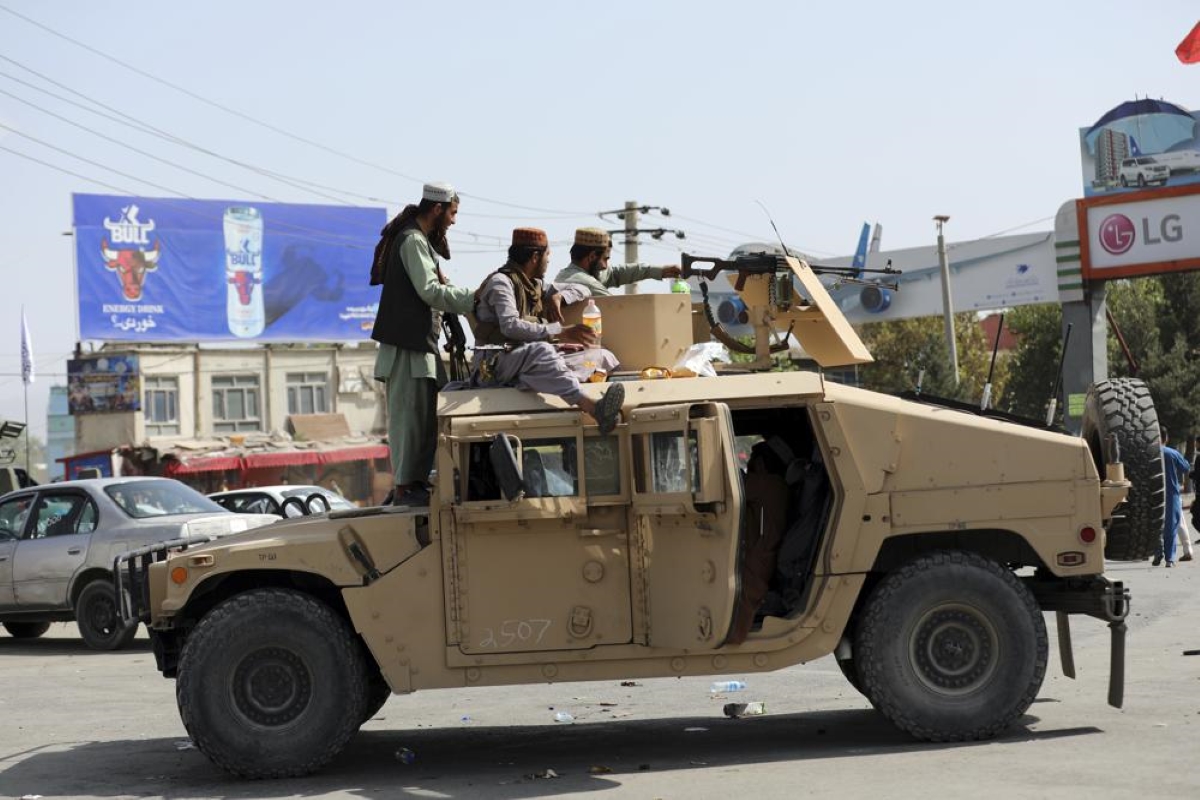When American boots marched out of Afghanistan, the two-decade investment of $83 billion to build infrastructure and train Afghan soldiers ultimately fell into the wicked hands of the Taliban.
They grabbed not only political power but also U.S.-supplied firepower – guns, ammunition, helicopters and more.
Advertisement
Bigger gains followed, including combat aircraft, when the Taliban rolled up provincial capitals and military bases with stunning speed, topped by capturing the biggest prize, Kabul, over the weekend.
It can be said that the US now encounters its own forces in modern military equipment.
The U.S. failure to produce a sustainable Afghan army and police force, and the reasons for their collapse, will be studied for years by military analysts.
The basic dimensions, however, are clear and are not unlike what happened in Iraq. The forces turned out to be hollow, equipped with superior arms but largely missing the crucial ingredient of combat motivation.
“Money can’t buy will. You cannot purchase leadership,” John Kirby, chief spokesman for Defense Secretary Lloyd Austin, said Monday.
Doug Lute, a retired Army lieutenant general who help direct Afghan war strategy during the George W. Bush and Barack Obama administrations, said that what the Afghans received in tangible resources they lacked in the more important intangibles.
“The principle of war stands – moral factors dominate material factors,” he said. “Morale, discipline, leadership, unit cohesion are more decisive than numbers of forces and equipment. As outsiders in Afghanistan, we can provide materiel, but only Afghans can provide the intangible moral factors.”
By contrast, Afghanistan’s Taliban insurgents, with smaller numbers, less sophisticated weaponry and no air power, proved a superior force.
US intelligence agencies largely underestimated that fundamentalism transcended military might as intelligence agencies failed to foresee the spectacular takeover.
“If we wouldn’t have used hope as a course of action, … we would have realized the rapid drawdown of U.S. forces sent a signal to the Afghan national forces that they were being abandoned,” said Chris Miller, who saw combat in Afghanistan in 2001 and was acting secretary of defense at the end of President Donald Trump’s term.
Stephen Biddle, a professor of international and public affairs at Columbia University and a former adviser to U.S. commanders in Afghanistan, said Biden’s announcement set the final collapse in motion.
“The problem of the U.S. withdrawal is that it sent a nationwide signal that the jig is up – a sudden, nationwide signal that everyone read the same way,” Biddle said.
Before April, the Afghan government troops were slowly but steadily losing the war, he said. When they learned that their American partners were going home, an impulse to give up without a fight “spread like wildfire.”
The failures, however, go back much further and run much deeper.
The United States tried to develop a credible Afghan defense establishment on the fly, attempting to widen the political foundations of the government in Kabul and seeking to establish democracy in a country rife with corruption and cronyism.
Year after year, U.S. military leaders downplayed the problems and insisted success was coming.
Some elements of the Afghan army did fight hard, including commandos whose heroic efforts are yet to be fully documented.
But as a whole the security forces created by the United States and its NATO allies amounted to a “house of cards” whose collapse was driven as much by failures of US civilian leaders as their military partners, according to Anthony Cordesman, a longtime Afghanistan war analyst at the Center for Strategic and International Studies.
The Afghan force-building exercise was so completely dependent on American largesse that the Pentagon even paid the Afghan troops’ salaries.
Too often that money, and untold amounts of fuel, were siphoned off by corrupt officers and government overseers who cooked the books, creating “ghost soldiers” to keep the misspent dollars coming.
